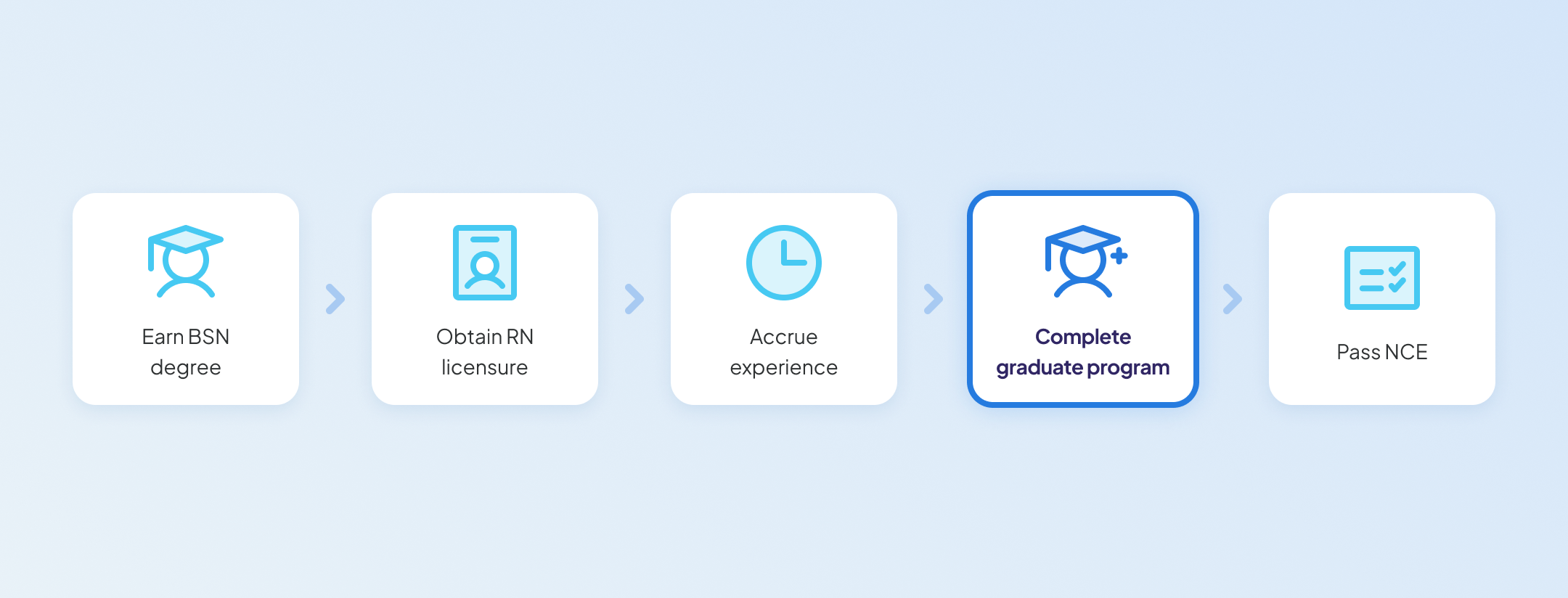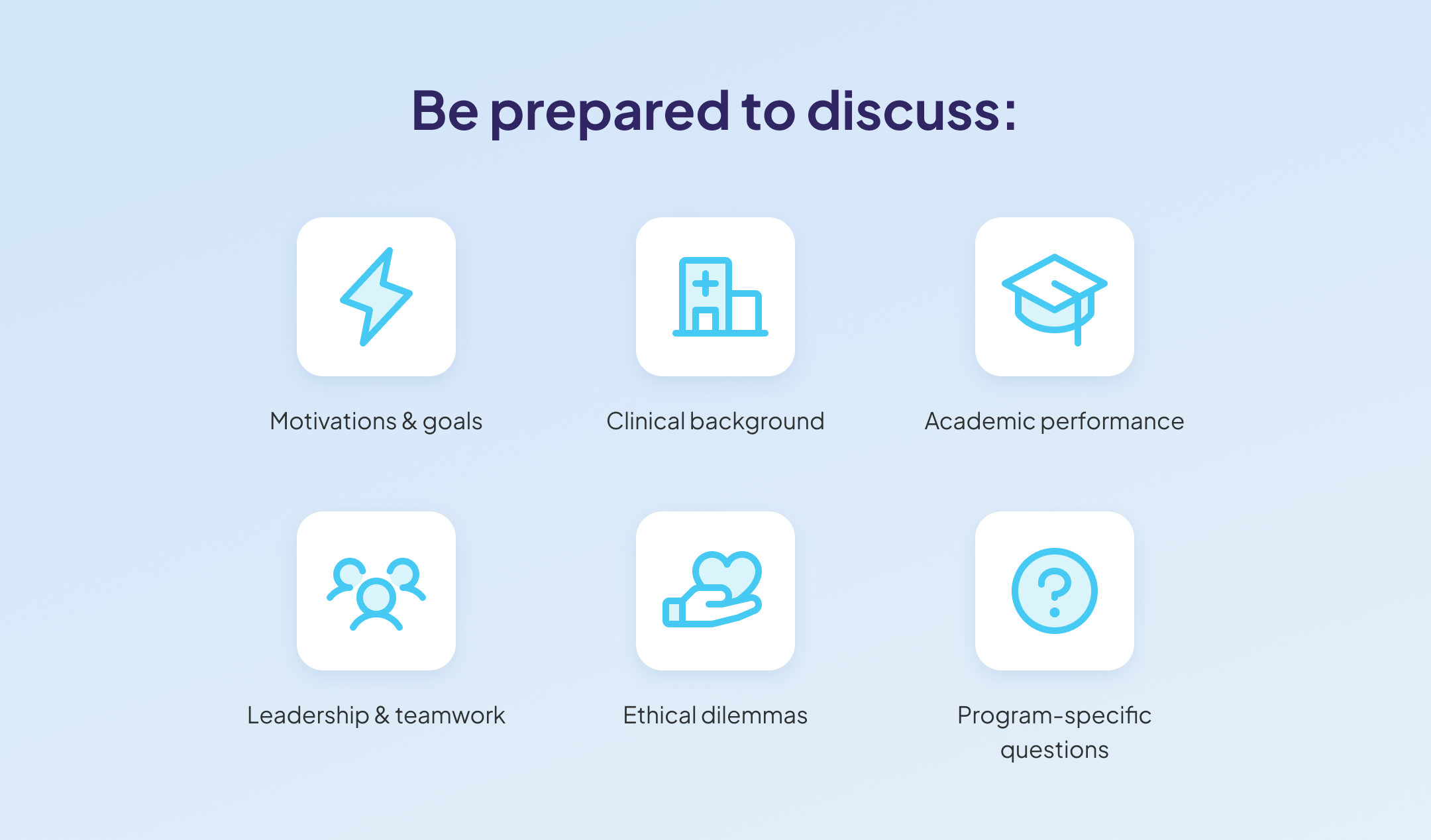Recent Posts
Most Popular
Tips for CRNA Program Admission: Common Questions & Interview Tips

Summary
- The CRNA program interview is a critical step for aspiring nurse anesthetists, during which schools assess your suitability for the program while you determine if their program aligns with your goals.
- Include a CV, CRNA personal statement and all relevant educational transcripts in your CRNA school application.
- Be prepared to answer interview questions about your motivation, clinical background and ethical dilemmas.
- Research the program beforehand and practice your interview responses to increase your chances of acceptance.
Transitioning to a career as a certified registered nurse anesthetist CRNA offers not only significant earning potential, but also the flexibility to pursue locum tenens opportunities, allowing you to travel and experience diverse clinical settings. But, after conquering the mountain of prerequisites and passing the GRE, there is still the crucial step of gaining admission to CRNA school.
Typically lasting 24-36 months, completing a master’s- or doctoral-level CRNA program is necessary to become a practicing CRNA. With more than 150 programs across the country, competitiveness varies but often requires high GPA and GRE scores, ICU experience and strong recommendations. To ensure admission into the program of your choice, you must first meticulously craft your application and ace the CRNA program interview.

Here, we’ll explore tips to help demystify the admission process, including:
-
- Application requirements
- Common CRNA interview questions
- Interview dos and don'ts
- Needing a doctorate degree
Application essentials
Regardless of which programs you apply to, there are certain components that you must include in your application to highlight your strengths as a candidate.
- Academic Transcript: Demonstrating a strong academic foundation, ideally with a high GPA.
- Proof of BSN Degree and RN Licensure: A Bachelor of Science in Nursing is the first step, followed by an active registered nurse license.
- Critical Care Experience: ICU/critical care experience showcases competency in a high-acuity setting.
- Standardized Test Scores: Proof of scores meeting program requirements (e.g., GRE).
- Letters of Recommendation: Strong recommendations from professors, managers or other healthcare professionals familiar with your work.
- CRNA Personal Statement: A compelling essay outlining your motivations, career goals and suitability for CRNA training.
- Professional CV: Thoughtfully outline your relevant experience, skills and achievements in nursing.
The interview process
Once your application is complete, the interview is the next crucial step in the process. During the interview, school representatives assess your suitability for their graduate programs, which must be completed for CRNAs to sit for the National Certification Exam (NCE) and become licensed to practice. However, this meeting is not one-sided. The program interview is also an opportunity for you to gauge a school’s philosophy and culture to determine if it aligns with your goals. When choosing an institution, be sure that it is included on the Council of Accreditations list. It is also important to note that as of 2025, prospective CRNAs will be required to earn a doctorate degree.
The CRNA interview format varies by school, but generally falls into two categories — individual or panel interviews. Individual interviews offer a more conversational atmosphere, while panel interviews allow faculty to assess you from various perspectives. The duration can range from 30 minutes to an hour and may or may not include written components. During this time, you must be prepared to navigate a series of questions that serve to assess your clinical knowledge, critical thinking skills and personal attributes.
In addition to being well-prepared for interview questions, I always suggest that candidates offer stories and examples to demonstrate personal clinical knowledge and critical thinking. Doing so will highlight your motivation and help you stand out among the crowd.

To further impress during your CRNA program interview, be prepared to discuss your passion for anesthesiology and your long-term career vision. Highlight your ICU/critical care experience, emphasizing your critical thinking, problem-solving and patient management skills. Don't shy away from your academic background — be honest about your strengths and areas of improvement and showcase any steps you've taken to excel. Demonstrate your leadership and teamwork abilities and be ready to describe how you would navigate potential ethical dilemmas you might face. Finally, research the program thoroughly and prepare questions that demonstrate how the curriculum aligns with your goals.
Questions to prepare for
Here’s a comprehensive list of common CRNA interview questions to get you started with your preparation:
General
- Why do you want to be a CRNA?
- What are your short-term and long-term career goals?
- How does your background prepare you for the challenges of CRNA school?
- Describe a critical situation you faced in the ICU and how you handled it.
- How do you manage stress in a demanding environment?
- Tell us about a time you had to work effectively as part of a team.
- What are your strengths and weaknesses as a student and a nurse?
- How do you stay current with advancements in anesthesia practice?
Clinical
- Explain the physiological effects of hypothermia during anesthesia.
- Discuss the considerations for administering medications to a patient with a history of heart failure.
- Describe the stages of general anesthesia and their associated signs.
- How would you troubleshoot a malfunctioning ventilator circuit?
Ethical
- How would you handle a disagreement with a colleague regarding an anesthetic plan?
- What steps would you take if you witnessed a coworker violating ethical principles?
- How would you manage a patient's unrealistic expectations for pain management?
Program specific
- What aspects of our CRNA program particularly interest you?
- How do you think your skills and experiences would contribute to our program's culture?
- What are your thoughts on the role of a CRNA in patient care delivery?
- What questions do you have for us about the CRNA program or our institution?
Interview dos and don'ts
Aside from the questions, mastering the art of the interview is equally important. I’ve found that the following tips can help make a lasting impression.
Do
- Dress professionally - Project a polished and confident image.
- Research the school - Demonstrate your genuine interest by knowing who you are speaking with, their expertise and any other program details.
- Prepare thoughtful questions - This showcases your initiative and engagement.
- Practice your answers - Anticipate common questions and rehearse your responses for clarity and conciseness.
- Arrive early - Punctuality reflects your professionalism and respect for the interviewer's time.
- Make eye contact and actively listen - Non-verbal communication is key and is often assessed.
- Be enthusiastic and articulate - Convey your passion for anesthesia, your long-term goals and your commitment to succeed.
- Express gratitude - Thank the interviewer for their time and consideration.
Don't
- Show up unprepared - Exhibiting a lack of knowledge about the program or the field reflects poorly.
- Speak negatively of previous employers or institutions - Maintain professionalism and focus on the positive aspects of your experiences.
- Provide irrelevant information - Stay focused on the question and provide concise answers.
- Appear overly nervous - Take deep breaths and exude confidence.
- Display negative body language - Avoid fidgeting, crossed arms or slouching.
- Ask inappropriate questions - Don't make personal inquiries about the interviewer(s) or ask questions that have easily searchable answers. Also, abstain from gossip and focus on program-specific inquiries.
Do you need a doctorate to become a CRNA?
The simplest answer to this question is not yet — but future CRNAs will.
Many healthcare practices are recognizing the need for more refined educational requirements as more complex cases arise. As such, beginning 2025, new CRNAs will be required to earn a doctorate degree as part of their graduate training. However, CRNAs who hold a master’s degree before 2025, like me, will be exempt from this requirement and will be grandfathered in.
This shift is following a trend in other specialties that are making permanent moves toward doctorate-level degrees for entry into the profession. Therefore, those in the early stages of their CRNA career who hold master’s degrees might consider pursuing a doctorate to enhance their competitiveness in the workforce.
While the CRNA graduate program interview process may seem daunting, it is your opportunity to shine and convince the admissions committee that you possess the intellectual curiosity, dedication, skill and compassion to excel in this demanding field. Be sure that while they are assessing your suitability, you're also evaluating their program and whether it aligns with your personal vision. By approaching this next step with confidence, authenticity and a genuine desire to learn, you'll be well on your way to securing that acceptance letter and becoming one step closer to realizing your CRNA career goals.
All information, discussions and opinions contained within this blog or otherwise on the website or any linked materials (“the “Blog Content”) is for general informational purposes only. All Blog Content is based on the author's opinions and experiences and is not necessarily representative of our opinions as an organization. It should not be considered as tax/financial advice, legal advice, compliance advice, health advice or other professional advice and does not constitute the practice of any medical, nursing or other professional healthcare advice, diagnosis or treatment or provision of legal services. You should seek professional assistance for any concerns or issues. If you or any other person has a medical concern, you should consult with your healthcare provider or seek other professional medical treatment immediately. While we strive to provide accurate and up-to-date information, we make no warranties or representations regarding the completeness, reliability, or accuracy of the Blog Content. Your use of the Blog Content is solely at your own risk and we will not be liable for any damages or losses arising from the use of, or reliance on, any Blog Content.





 Brant Langlinais
Brant Langlinais

Comments